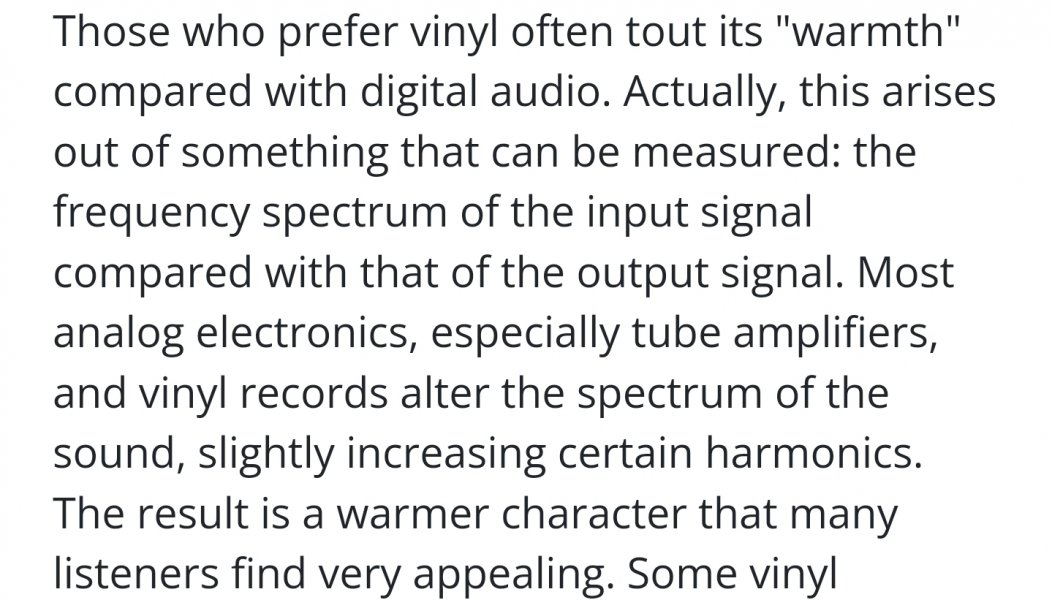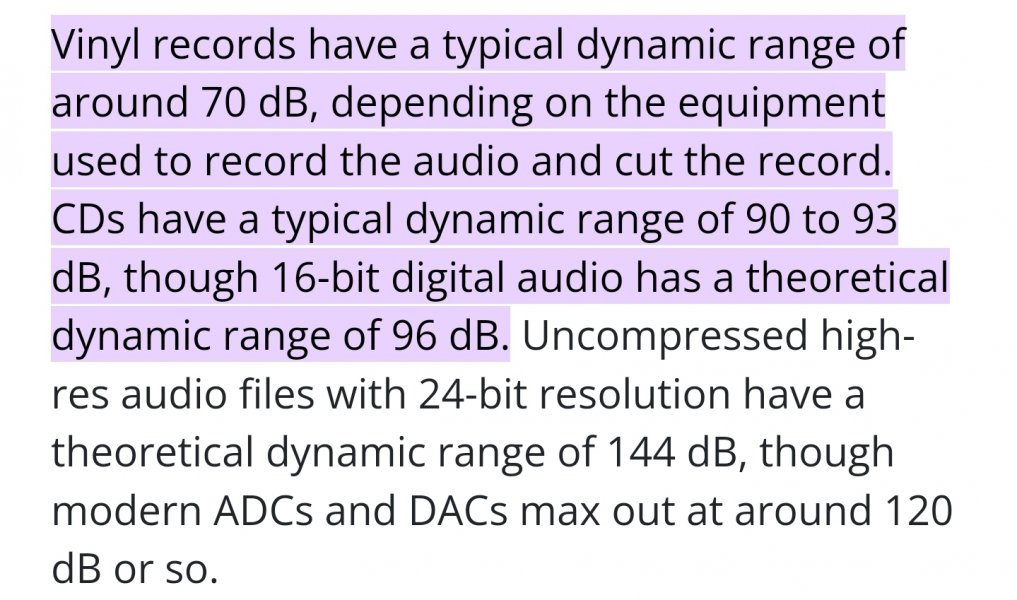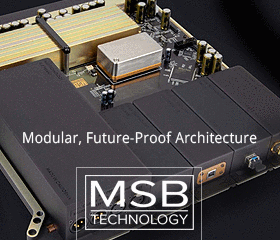Oh I agree with you, alas on the premises, not the conclusions.
High-res digital is faster, more ergonomic and better at every objective metric. It is simpler to produce, distribute and reproduce. It is cheaper to work with. It allows for a lot that analog methods struggle with.
But this says nothing about the perception of quality at the final reproduction stage, and that's the only thing that matters. It doesn't mean that we can find the best music in natively digital formats. That every digital recording is better than analog recordings. That certain types of distortions don't actually improve music perception. That the lack of noise is a good thing. etc.
Confusing the premises with the conclusions is very, very weird in this case.
Please notice that I haven't taken a camp in this analog/digital debate. I see both as essentially the same, from a first principles pov. Since we still have microphones and mixing processes, what we are debating are just encoding/decoding methods for information that is already synthesized, and their second order effects on our perception of the music. Even in exceptional recordings, the damage is already done. The best mic in the world has about 15 bits dynamic resolution on a good day, within the capabilities of good vinyl, so that's not the limiting factor as far as I'm concerned. Anybody that has heard half decent vinyl knows it has no dynamic range, channel separation or the issues typically people list as obvious advantages for digital, with the exception of noise. After the mixing process those 15 (at best) bits are decimated into oblivion, so having a 32 bit capable distribution format is just a marketing gimmick.
I'm not too fond of people dissing on any of these formats as the only thing it shows is that they haven't heard them properly. If you did, you wouldn't be so quick in naming a superior solution because you'd recognize the amount of nuance at play here.
This coming from a guy that makes DACs.
















